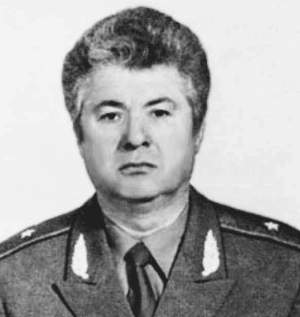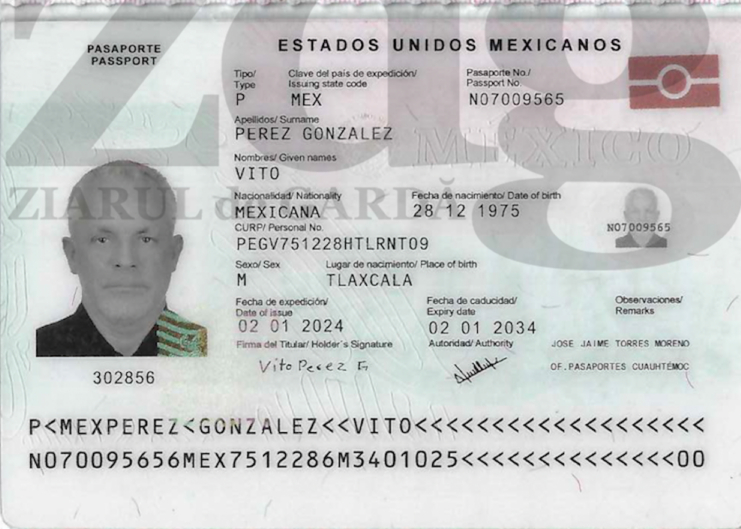The Topas Case's Context
Post-Soviet Moldova. Ascension of Plahotniuc.

 Vladimir Voronin
Vladimir Voronin Vladimir Plahotniuc
Vladimir PlahotniucRaider attacks. Antimafia press conference.
Put simply, a raider attack is when you wake up one morning and discover that your assets were transferred to some offshores or unknown strangers, based on court judgements about which you knew nothing. Soon afterwards, you are summoned to the prosecutors, who notify you about some fabricated cases against you and suggest that you shouldn’t oppose to the robbery. If you keep fighting for your rights, you get sentenced, jailed and annihilated. Those very institutions (judiciary and law-enforcing agencies), meant to protect and enforce the rule of law, proved to be its most defiant transgressors. Inside Moldova, the victims of the raider attacks could complain only to their executioners.In 2009, the Communist Party lost the power. In 2010, assuming the dictatorship is over, more than twenty-four business people spoke out in the Antimafia press conferences about their dispossessions by raider attacks. All of them pointed at Vladimir Plahotniuc as the perpetrator and beneficiary of the robberies. It was the Plahotniuc’s way of becoming the wealthiest man in the Eastern Europe, in only few years, without a cent invested, by using the Moldovan judiciary and law-enforcing agencies — important banks, insurance companies, TV channels, real estates have surfaced at some point in the Plahotniuc’s ownership, overtly or hidden as “beneficial owner”.

|
| Antimafia Press Conference of 11 August 2010. |
Beginning of raider attacks against the Topas.
Viorel Topa and Victor Topa (not relatives) used to be co-shareholders with Vladimir Plahotniuc, among others, in Victoriabank. The Topas bought most of their shares at the Stock Exchange from Danube Found, an investment arm of European Bank for Reconstruction and Development (EBRD). Prior to the acquisition, Viorel and Victor visited the EBRD head office in London and, after the KYC procedures, received the EBRD's consent to become their co-shareholders in Victoriabank.On 19 May 2010, the representative of the Topas, Vladimir Morari, was about to register for that day’s Annual Shareholders’ Meeting of Victoriabank, as he used to do the last five years. The Topas discovered that the ownership over their shares were transferred to unknown entities, based on court judgments, about which they had no knowledge, and which were enforced in secret and concertedly the day before the Meeting. Secrecy is central in raider attacks. In the same day of 19 May, Victor Topa had a telephone conversation with Plahotniuc, who threatened the Topas with criminal cases if they go public about the robbery.
On 11 August 2010, the Topas took part at the aforementioned Antimafia conferences. Two weeks later, they received their first summonses to the prosecutors and were charged within fabricated criminal cases.
Parliamentary Assembly of the Council of Europe (PACE), Declaration no. 617, document 14169, 11 October 2016:
Key witnesses, such as Victor and Viorel Topa [...], who publicly expressed their willingness to testify about the involvement of tycoon Plahotniuc in money laundering and illegal financial operations, were subjected to political persecution.
English and Scottish Courts’ findings.
In the evening of the same day of 11 August 2010, Plahotniuc had his counter-conference. He denied his implication in raider attacks and any connection with the Topas’ shares. On 8 and 9 March 2012, the High Court of London and the Cassation Court of Edinburgh, respectively, found Plahotniuc hidden as the final beneficiary owner of the company, in which the stolen shares were concealed. The Topas published those decisions and notified the public prosecutors accordingly, but no institution in Moldova has budged against its master.Within his counter-conference, Plahotniuc, in his ostensible capacity of private person, also stated that he had information about some ongoing criminal investigations against the Topas. At that point, Plahotniuc was the only who “knew” that.

|
| Vladimir Plahotniuc, a.k.a. Vlad Ulinici, a.k.a. Vladislav Novak, a.k.a. Vito Perez Gonzalez, by his other identities. |
Transaction in Amsterdam. Cashing the spoils.
The raider attacks against the Topas were perpetrated in two waves. In May 2010 the Topas' shares in Victoriabank and Victoria Asigurari were stolen. In the summer of 2011 — their shares in Banca de Economii, ASITO and two more shareholding companies in Victoriabank. About the second robbery the Topas found out in September 2011. Plahotniuc concentrated all the stolen shares in his Dutch holding OTIV Amsterdam and rushed to cash the trophies by selling them to Platon. The transaction was concluded in december 2011. In their negotiations and subsequent documents, both Plahotniuc and Platon addressed the problem with the Topas' shares. Thus Plahotniuc admitted by himself that he was involved in the misappropriation, although in public he kept denying any connection.According to Platon, Plahotniuc conned him that $5 million out of $80m were (somehow) destined to “resolve the problem with the Topas” — a lie meant to accommodate Platon and make him pay. Plahotniuc received real money for the shares which he never declared and with which he always pretended to “have no connection” until discovered within the court hearings in Amsterdam.
*Two halves of the heist, involving two jurisdictions: Moldovan and Dutch.
The price between Plahotniuc and Platon was set as for stolen assets. Only the package of Victoriabank (apart from Banca de Economii, ASITO and Victoria Asigurari) amounts to ≈$50m according to the valuation report of the audit company Ernst & Young Germany, but also to the Stock Exchange transactions in Moldova.
How the Topas case is different.
The Topas are by far not the only victims deprived of their assets by Plahotniuc. The case stands out among other raider attacks due to its magnitude (two banks and two insurance companies were stolen), but there are also two more salient distinctions.1. Most of the robbed victims gave in under the terror of the repressive machine, to save themselves and their families. The Topas kept fighting for their rights and hence became the enduring target of the Plahotniuc's regime. In his interview of 12 May 2016, Plahotniuc in première spoke about his enemies and named only Viorel Topa and Victor Topa.

|
| Victor Topa and Viorel Topa at the Antimafia Press Conference |
In the following years, the Interpol, German authorities and international monitoring organisations determined the fabricated cases against the Topas as politically driven, and rejected all the ceaseless and repetitive requests from Moldova.
2. As a rule, in a country in which the judiciary is commanded by phone and all documents are issued (fabricated) by the institutions-perpetrators of raider attacks, the evidence on such robberies is hardly obtainable. The Topas case though is very well documented, by two independent (autonomous) sets of evidence: the set got from the English and Scottish courts, and the set on the Amsterdam transaction between Plahotniuc and Platon.
There is also a compelling commonsense proof: during the relevant period, only one package of Victoriabank's shares moved — the one which disappeared from the Topas and reappeared in the Plahotniuc's holding OTIV in Amsterdam.
SUMMARY
on the raider attacks and the Topas case:
on the raider attacks and the Topas case:
◀
▶
TIMELINE:
◀
▶
Secret Annex. Absolute control. Captured state.
After the fall of the communist regime in 2009, Plahotniuc was seeking to secure and officialise his unipersonal control over the judiciary, Prosecutor General's Office and other law-enforcing institutions. For this purpose, he imposed an Alliance Agreement to the parliamentary factions, which was signed in December 2010. On 16 November 2011, the leader of the Liberal Party Mihai Ghimpu made public the Secret Annex of that Agreement, which exhibits that the mentioned institutions fall under the control of the Democratic Party (the pocket party of Plahotniuc, of which he was also the president). There were those very institutions which were used in raider attacks and subsequent reprisals against the robbed victims (see here the table of repressive actions).Unlike, say, neighbour Ukraine, where there are numerous oligarchs struggling for the control over the judiciary and state coercive agencies, Plahotniuc is the only oligarch in Moldova.
Jamestown Foundation, Washington, 1 July 2016:
It is confirmed that the Republic of Moldova is a captured state, and not by oligarchy, but by a single person (Plahotniuc). A person that does not have equivalent in the Republic of Moldova as wealth and influence and who can manipulate justice and other systems in his own interest.Plahotniuc was appointing the country’s presidents (like his deputy Lupu), prime-ministers, speakers of the Parliament (like his godson Candu), heads of the courts, the Prosecutors General, Directors Generals of the Anticorruption Centre, ministers, governors of the National Bank. Plahotniuc could grab any private or public property; he could arrest and gag his opponents, target businessmen, important witnesses, politicians, whistleblowers. When the Prime Minister Filat challenged the Plahotniuc’s single-handed control over the Prosecutor General’s Office, Plahotniuc stripped Filat of his immunity and arrested him right in the Parliament in a procedure that barely took ten minutes.
Thorbjørn Jagland, Secretary General of the Council of Europe, 10 August 2015, “Bring Moldova Back From the Brink”:
The state is still in the hands of oligarchs. [...] The government must immediately begin purging corrupt officials from public bodies. [...] As a start, the dozens of judges — some very high-profile — who have been accused of egregiously abusing their power should be investigated. [...] The Anti-Corruption Center, the National Integrity Commission and the General Prosecutor’s Office must be set on an independent footing. [...] This captured state must be returned to its citizens.
Plahotniuc’s road to power.
This was the thuggish path to power of Vladimir Plahotniuc (or Vlad Ulinici, or Vito Perez Gonzalez, or Vladislav Novak1, by his other identities discovered) — from a pimp sought for human trafficking and monitored by Interpol Italy2 for “participation in criminal organisations and money laundering”, to unlimited power in Moldova in 2010-2019; from the “grey cardinal” of the communist regime3, to a full-fledged dictator.
|
| 1One of the Plahotniuc's multiple identities. He also has several citizenships, including Russian. |

|
| 2Italian Interpol’s Notice on monitoring Plahotniuc since 2007 for participation in criminal organisations and money laundering. |

|
|
3Application for Russian citizenship submitted by Vladimir Plahotniuc: ➊ Section "Motives": "Russia is my historical homeland, I want to be under the protection of its laws." ➋ Section address: Russian-controlled enclave, Transnistria. ➌ “In the event of granting me the citizenship of the Russian Federation, I pledge my loyalty to Russia and commit myself to fulfilling my civic duty in accordance with the Constitution of the Russian Federation and the legislation of the Russian Federation.” |

|
| Along with Plahotniuc's Moldovan, Romanian and Russian identities (Vladimir Plahotniuc, Vladimir Ulinici, Vladimir Plakhotnyuk, Vladislav Novak, Владимир Георгиевич Плахотнюк), Interpol has also descovered his Mexican identity under the name Vito Perez Gonzalez, as shown above (*foto/doc Ziarul de Gardă). |

On 22 July 2025, Greek police arrested Plahotniuc at Athens "El. Venizelos" Airport on Interpol Red Notice. He was heading to Dubai under a false name with a Bulgarian passport. Fake passports and ID cards from different countries were found on him:
Passport – Russian Federation, issued on 14 April 2021 – KIRSANOV Stanislav
Passport – Ukraine, issued on 20 November 2019 – TAUSHANZHY Mykhailo
Passport – Romania, issued on 9 September 2020 – PLAHOTNIUC Vladimir
Passport – Russian Federation, issued on 25 January 2021 – TAUSHANOV Mihail
Passport – Iraq, issued on 15 May 2018 – AL SHAHEEN Fereyduon Shaheen Yako
Passport – Vanuatu, issued on 9 September 2022 – AL SHAHEEN Fereyduon Shaheen Yako
Passport – Romania, issued on 25 February 2020 – ANTOHE Mihai
Passport – Ukraine, issued on 20 November 2019 – TAUSHANZHY Mykhailo
Passport – Bulgaria, issued on 4 July 2024 – TAUSHANOV Mihail
Passport – Ukraine, issued on 20 November 2019 – TAUSHANZHY Mykhailo
Passport – Romania, issued on 9 September 2020 – PLAHOTNIUC Vladimir
Passport – Russian Federation, issued on 25 January 2021 – TAUSHANOV Mihail
Passport – Iraq, issued on 15 May 2018 – AL SHAHEEN Fereyduon Shaheen Yako
Passport – Vanuatu, issued on 9 September 2022 – AL SHAHEEN Fereyduon Shaheen Yako
Passport – Romania, issued on 25 February 2020 – ANTOHE Mihai
Passport – Ukraine, issued on 20 November 2019 – TAUSHANZHY Mykhailo
Passport – Bulgaria, issued on 4 July 2024 – TAUSHANOV Mihail
Passport – Ukraine (internal) – TAUSHANZHY Mykhailo
Identity card – Vanuatu – AL SHAHEEN Fereyduon Shaheen Yako
Driver’s license – Romania, issued on 7 May 2025 – ANTOHE Mihai
Driver’s license – Romania, issued on 10 February 2020 – ANTOHE Mihai
Driver’s license – Ukraine, issued on 15 September 2021 – TAUSHANZHY Mykhailo
Driver’s license – Republic of Moldova, issued on 9 October 2018 – PLAHOTNIUC Vladimir
Driver’s license – Russian Federation, issued on 18 October 2023 – KIRSANOV Stanislav
Identity card – Bulgaria – TAUSHANOV Mihail
Driver’s license – Bulgaria, issued on 16 January 2023 – TAUSHANOV Mihail
Identity card – Vanuatu – AL SHAHEEN Fereyduon Shaheen Yako
Driver’s license – Romania, issued on 7 May 2025 – ANTOHE Mihai
Driver’s license – Romania, issued on 10 February 2020 – ANTOHE Mihai
Driver’s license – Ukraine, issued on 15 September 2021 – TAUSHANZHY Mykhailo
Driver’s license – Republic of Moldova, issued on 9 October 2018 – PLAHOTNIUC Vladimir
Driver’s license – Russian Federation, issued on 18 October 2023 – KIRSANOV Stanislav
Identity card – Bulgaria – TAUSHANOV Mihail
Driver’s license – Bulgaria, issued on 16 January 2023 – TAUSHANOV Mihail
⇲ Source: ZdG, 24 July 2025
Parliament’s and US Department’s Declarations on Plahotniuc.
Free Europe, Kalman Mizsei, EU diplomat, former EU representative in Moldova, 4 October 2016:The Republic of Moldova is in an unusual situation, because all the power is in the hands of one person. We must regard these elections through the question: how can we regain the power, concentrated in the hands of one man, in the hands of Mr Plahotniuc?
On 8 June 2019, the Parliament of Moldova adopted the “Declaration on the recognition of the captive nature of the Republic of Moldova”. The document reads:

The Parliament of the Republic of Moldova:Few days later, on 14 June 2019, Plahotniuc fled Moldova and hid in the US. On 13 January 2020, the U.S. Department of State issued the “Public Designation, Due to Involvement in Significant Corruption, of Former Moldovan Official Plahotniuc”, stating:
1. Denounces the current oligarchic regime, led by the leader of the Democratic Party, Vladimir Plahotniuc, who is guilty of illegal and unconstitutional control over the Prosecutor General’s Office, the judiciary, the National Anticorruption Centre, the National Integrity Authority, the Central Electoral Commission, the Security and Intelligence Service, the National Bank of Moldova and other authorities which should operate autonomously, independently of political factors, and be democratically monitored;
2. Finds that the Democratic Party under the leadership of Vladimir Plahotniuc constantly acts as a party of totalitarian regime, illegally abusing public funds to promote its own projects, institutions, positions, and repressive levers of control in order to intimidate and eliminate political opponents and to apply political corruption through various mechanisms of blackmail and bribery;

Today, I am designating former Moldovan official and oligarch Vladimir Plahotniuc due to his involvement in significant corruption. In his official capacity, Plahotniuc was involved in corrupt acts that undermined the rule of law and severely compromised the independence of democratic institutions in Moldova.
The law also requires the Secretary of State to either publicly or privately designate or identify such officials and their immediate family members. In addition to Plahotniuc, I am designating his wife, Oxana Childescu; his son, Timofei Plahotniuc; and his minor child.
Today’s action sends a strong signal the United States does not tolerate corruption and stands with the people of Moldova in their fight against it. The Department will continue to use these authorities to promote accountability for corrupt actors in this region and globally.
* * *

|
| Vladimir Plahotniuc (Ulinici, Novak, Gonzalez), a few days before fleeing Moldova on 14 June 2019. |
Since November 2014, Moldova is infamously known in the whole world — one billion US dollars was stolen from the National Reserves of the National Bank. It was dubbed the Heist of the Century as the embezzlement amounts to one eighth of the Moldovan GDP.
A month later, on 16 June 2020, the Prosecutor's Office of the Republic of Moldova requested the extradition of Vladimir Plahotniuc from the USA. At the same time, the Anticorruption Prosecutor's Office submitted to the American authorities a request for a rogatory commission, requesting the performance of criminal prosecution measures, including those concerning Vladimir Plahotniuc's assets in the USA.
UPDATE: in October 2022, the US, in December 2022, the UK, and in May 2023, the EU, added Plahotniuc to the Sanctions List (see here).
✎ For more information, see here.



Comments
Post a Comment